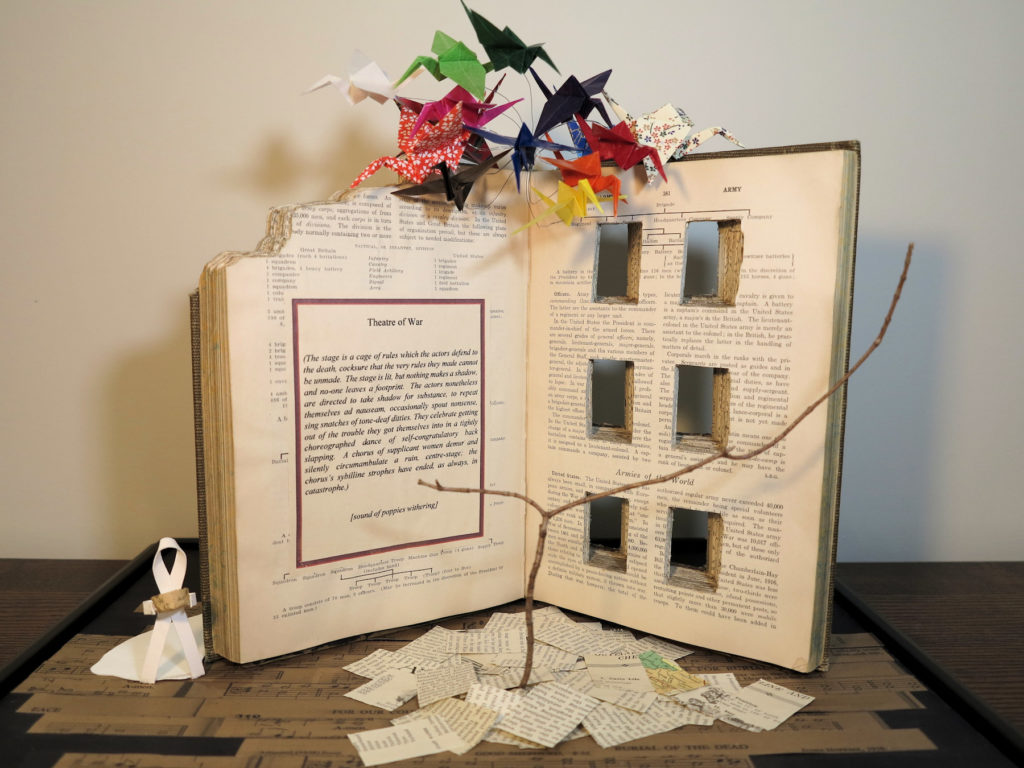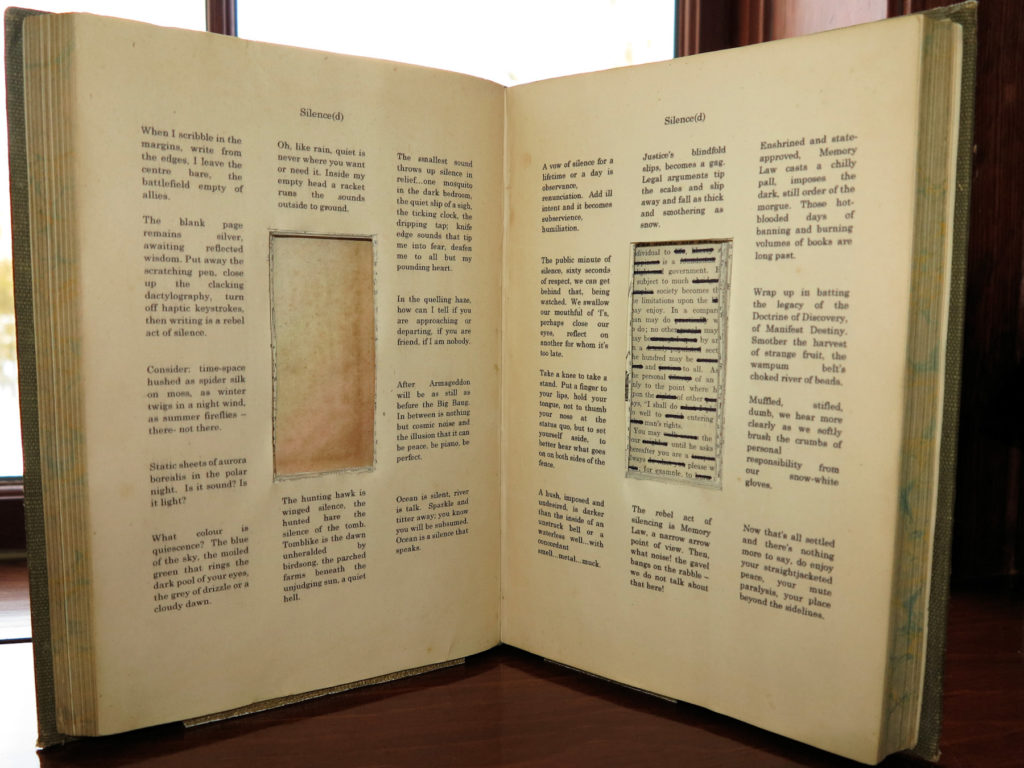collage & bricolage
Prairie 1 : Unsettled
September 2, 2024
No Comments
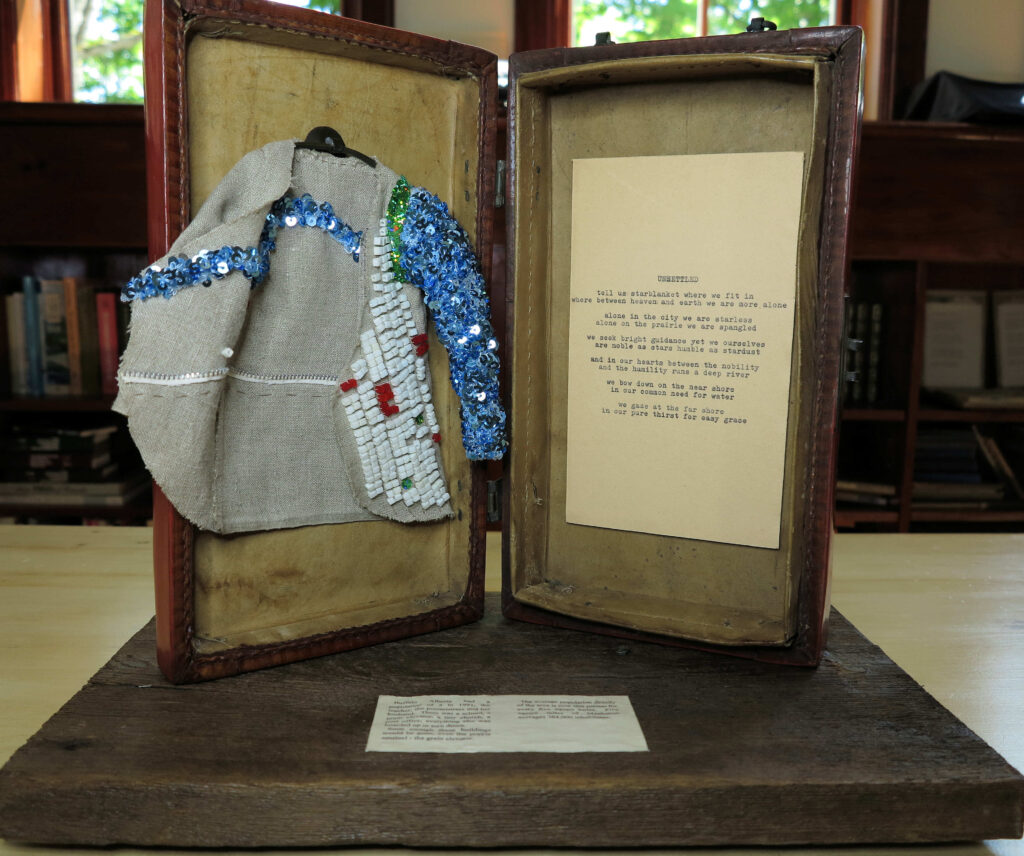
Buffalo Alberta had a population of 3 in 1991, the teacher, the postmistress and her husband. There was a school, a grain elevator, a tiny church, a post office; everything else was boarded up or torn down.
Soon enough these buildings would be gone, even the prairie sentinel - the grain elevator.
The average population density of the area is now one person for every five square miles. Five square miles of Manhattan averages 364,000 inhabitants.
Unsettled
tell us, star blanket, where we fit in
where, between heaven and earth, we are more alone
alone in the city we are starless
alone on the prairie we are spangled
we seek bright guidance yet we ourselves
are noble as stars, humble as stardust
and in our hearts between the nobility
and the humility, runs a deep river
we bow down on the near shore
in our common need for water
we gaze at the far shore
in our pure thirst for easy grace
Prairie 2: Driven
August 27, 2024
No Comments
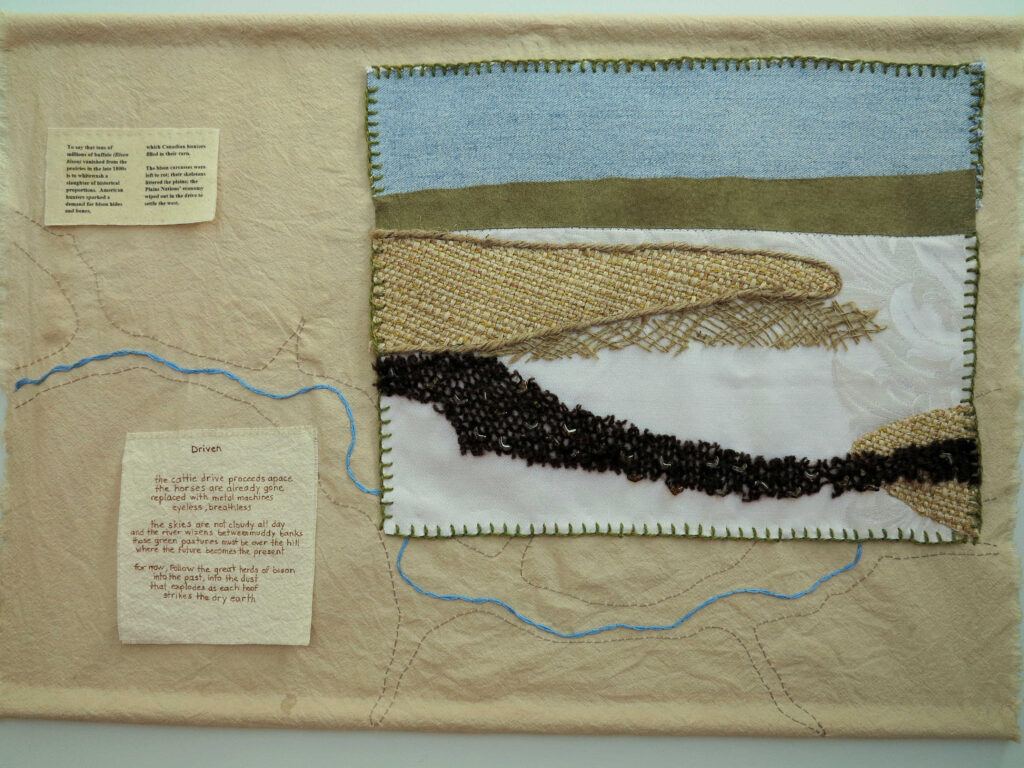
To say that tens of millions of buffalo (Bison bison) vanished from the prairies in the late 1800s is to whitewash a slaughter of historical proportions. American hunters sparked a demand for bison hides and bones, which Canadian hunters filled in their turn.
The bison carcasses were left to rot; their skeletons littered the plains; the Plains Nations’ economy wiped out in the drive to settle the west.
Driven
the cattle drive proceeds apace
the horses are already gone,
replaced with metal machines,
eyeless, breathless
the skies are not cloudy all day
and the river wizens between muddy banks
those green pastures must be over the hill
where the future becomes the present
for now, follow the great herds of bison
into the past, into the dust
that explodes as each hoof
strikes the dry earth
Prairie 3 : Penned
August 20, 2024
No Comments
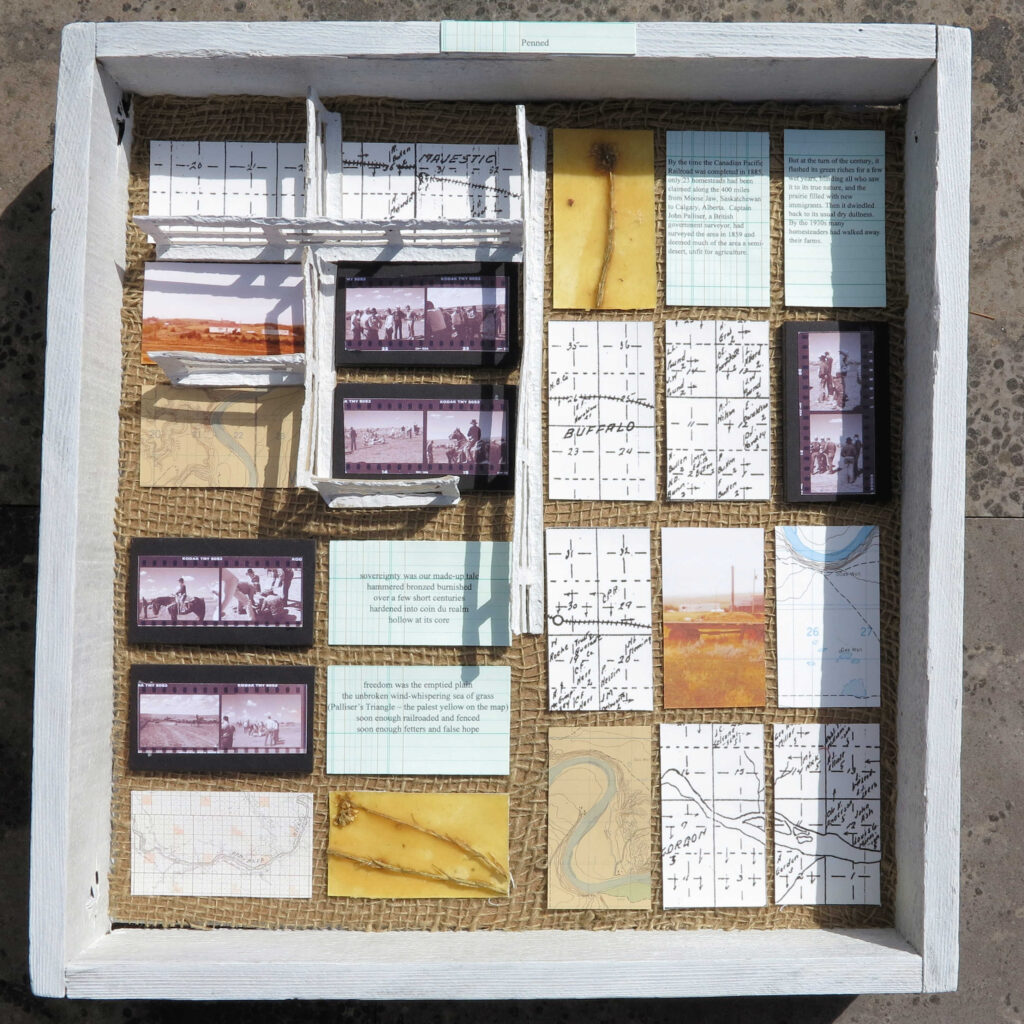
By the time the Canadian Pacific Railroad was completed in 1885, only 23 homesteads had been claimed along the 400 miles from Moose Jaw, Saskatchewan to Calgary, Alberta. Captain John Palliser, a British government surveyor, had surveyed the area in 1859 and deemed much of the area a semi-desert, unfit for agriculture.
But at the turn of the century, it flashed its green riches for a few wet years, blinding all who saw it to its true nature, and the prairie filled with new immigrants. Then it dwindled back to its usual dry dullness. By the 1930s many homesteaders had walked away their farms.
Penned
sovereignty was our made-up tale
hammered bronzed burnished
over a few short centuries
hardened into coin du realm
hollow at its core
freedom was the emptied plain
the unbroken wind-whispering sea of grass
(Palliser’s Triangle – the palest yellow on the map)
soon enough railroaded and fenced
soon enough fetters and false hope
Every day is mother’s day!
May 7, 2022
No Comments
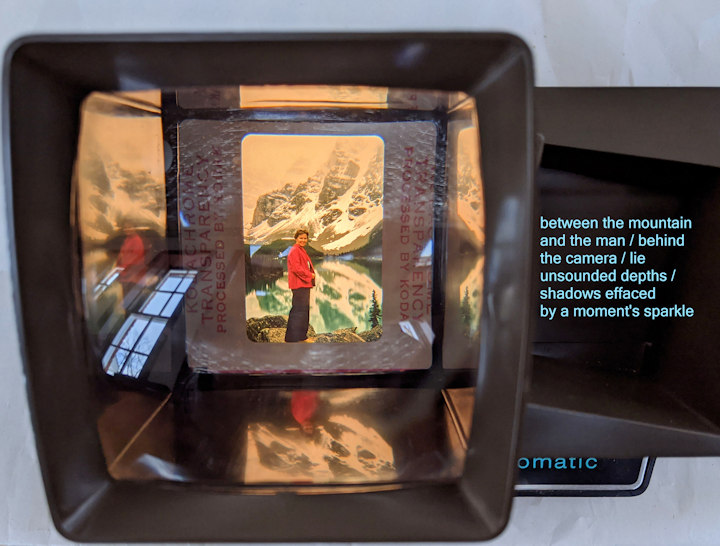
Those who know me are familiar with my disdain for greeting card holidays. Even the woman who lobbied for the creation of Mother’s Day regretted the results and tried to undo it. To paraphrase Tom Lehrer, should we be thankful that Mother’s Day doesn’t last all year? So, my post today is happenstance, a work ready for publication, twenty years after my mother died. The slide of my mother was taken by my father, perhaps on their honeymoon. I ungummed an old slide viewer, searched the internet for a tiny replacement bulb that had a tiny screw-in base, photographed the image and added the verse.
